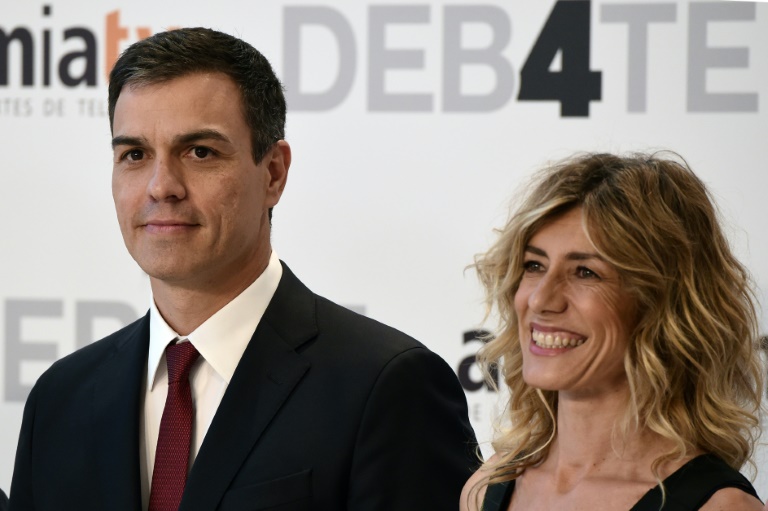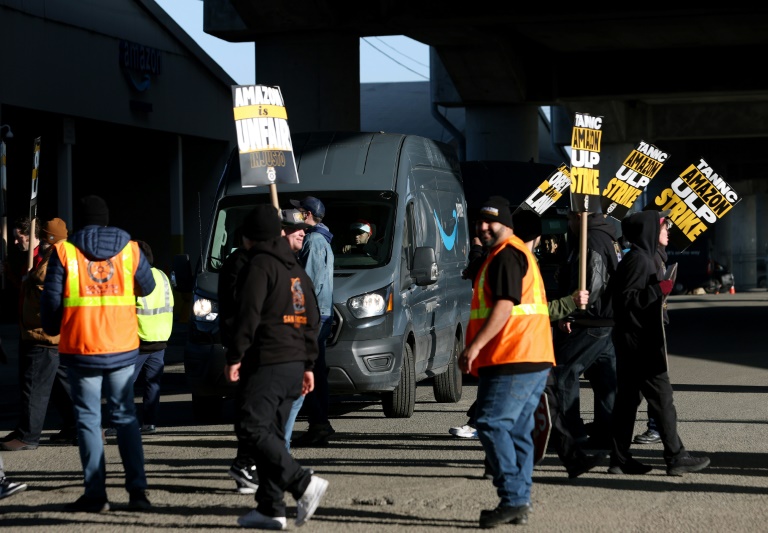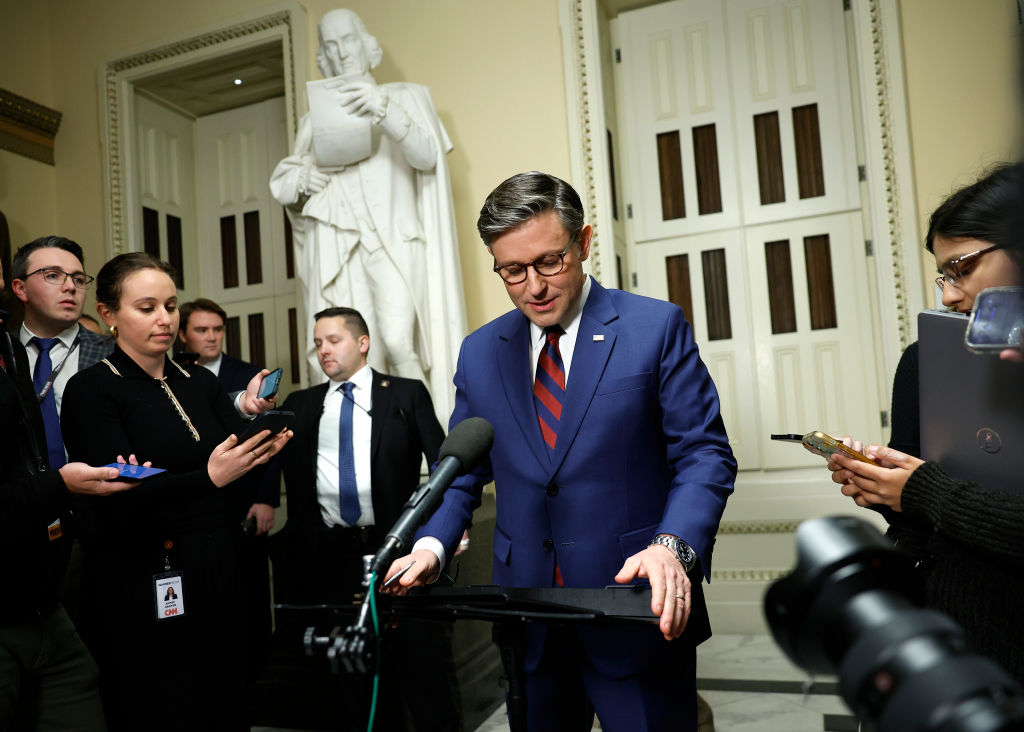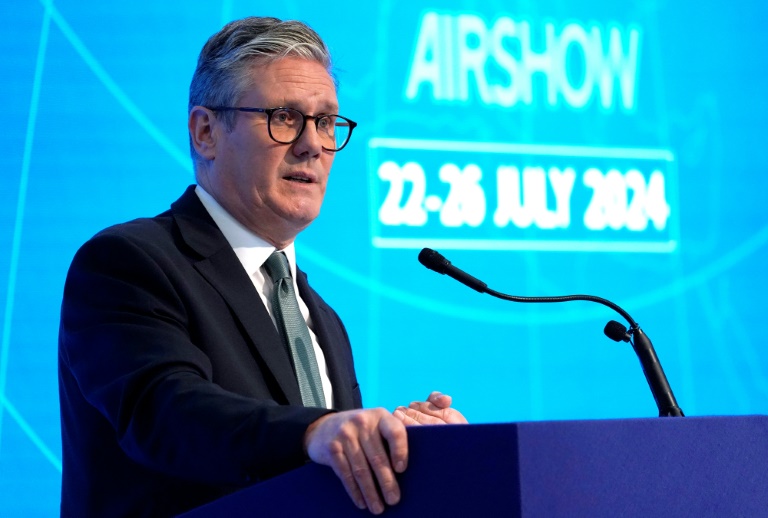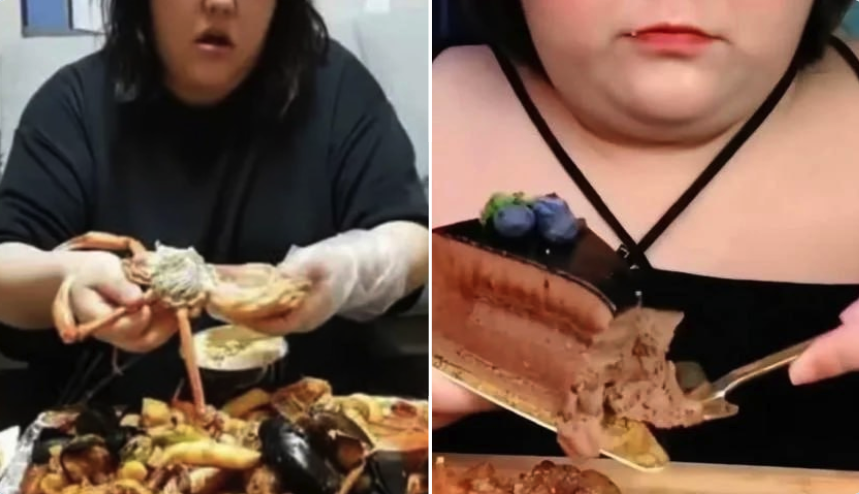Spanish Prime Minister Pedro Sanchez will testify on July 30 in a preliminary corruption inquiry into his wife Begona Gomez’s business ties, a Madrid court said Monday, an issue that caused him to consider resigning three months ago.
The investigation over alleged corruption and influence peddling has infuriated Sanchez, who has characterised the allegations as an effort to undermine him and his left-wing government.
Judge Juan Carlos Peinado will hear Sanchez as a “witness” at his official residence at 11:00 am (0900 GMT) on July 30, a court statement said.
He will be questioned over suspected influence peddling by his wife, the court said.
“Sanchez has given no explanations to parliament or to the media_ he has to do so before a judge,” said Borja Semper, spokesman for the main opposition People’s Party, after the announcement.
“Nobody is above the law, not the prime minister or his entourage, all politicians should understand this,” Semper said.
Santiago Abascal, the leader of the far-right Vox party, added: “We have always said that we will use all the means at our disposal to end the most corrupt government in history”.
Gomez on Friday invoked her right to remain silent under questioning by a judge.
Gomez had briefly appeared before the same judge on July 5, but the hearing was suspended after her lawyer said they had “not been notified” about all the complaints against her and asked for time to study them.
The investigation began on April 16 following a complaint by Manos Limpias (“Clean Hands”), an anti-graft NGO linked to the far-right, alleging corruption in the private sector and influence peddling, while admitting its claims were based on media reports.
A second complaint, citing influence peddling, was filed by Hazte Oir (“Make Yourself Heard”), an ultra-Catholic pressure group with far-right ties.
Sanchez has repeatedly insisted his wife has done nothing wrong, with his justice minister, Felix Bolanos, on Friday coming out in her defence.
Gomez, who has worked in fundraising for years, notably for foundations and NGOs, is alleged to have used her husband’s position as leverage within her professional circles, notably with a businessman called Juan Carlos Barrabes who was seeking public funding.
Barrabes — who teaches part of a master’s course at Madrid’s Complutense University that is run by Gomez — acknowledged meeting her five or six times at Moncloa, the premier’s official residence, while testifying.
Sanchez was also present at two of those meetings, he said.
Barrabes — who got two letters of recommendation from Gomez before pitching for a public tender worth several million euros — said they only talked about matters of innovation, judicial sources said.
Sanchez’s Socialist party said there was “absolutely nothing” unusual in such meetings, which were normal for the prime minister, and police investigators also presented a new report to the court earlier this month saying they found no irregularities on Gomez’s part.
The public prosecutor’s office also called for the case to be closed for lack of evidence at the end of April. But Peinado refused, insisting there was “sufficient” evidence to continue.
When news of the probe broke in April, Sanchez shocked Spain by saying he was considering resigning over what he described as a campaign of political harassment by the right. He ultimately decided to stay on.

